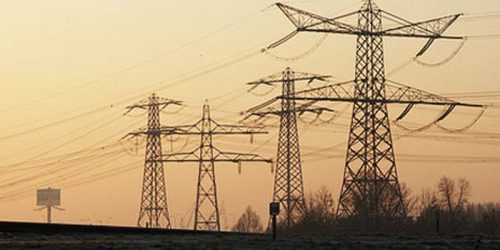ISLAMABAD: The government-owned National Transmission & Despatch Company (NTDC) has challenged certain directives of the National Electric Power Regulatory Authority (Nepra), saying these will limit the scope of bidding for lowest tariff and lead the country towards another ‘capacity trap’.
The “NTDC believes that while considering these directions, size of committed set of projects would further increase and thus ‘least cost principle’ of the Indicative Generation Capacity Expansion Plan (IGCEP 2020-47) would be adversely affected”.
The Power Division’s NTDC, which is also the power system operator, put on record that a number of advisories of the power regulator were contradicting the government’s policy directives and decisions, including those taken by the Cabinet Committee on Energy (CCoE) only a few months ago. Some of the regulatory orders were found to be against the rules and laws.
Declining Nepra’s directives for including some projects for which the provincial governments had completed feasibilities in the IGCEP, the NTDC said the commitment or progress on the “generation capacity expansion projects by provinces, without aligning with the country level demand forecast and envisioned to be evacuated through national transmission network, would cause capacity trap” and most likely to hamper the GoP’s prevailing focus to reduce the electricity basket prices on short, medium as well as long-term basis”.
The NTDC also did not agree to the regulator’s orders for considering for system stability some of old projects now completing their contract life, including Habibullah Coaster for Quetta. It said the grid code approved by the regulator itself did not require consideration of system stability during preparation of the IGCEP.
However, it could be considered during the preparation of Transmission System Expansion Plan (TSEP) for strategic needs of the power plants completing their terms in near future for mitigation of system constraints or stability in the long-term scenario.
The system operator also rejected Nepra’s orders for considering renewable energy projects in the 27-year expansion plan for which it had given generation licences before the new notification of Alternative & Renewable Energy Policy (AREP 2020).
Quoting CCoE’s April 4, 2019 decision, the NTDC said all new renewable energy projects (for which LoIs have been issued but have not received tariff from Nepra at the time of CCoE decision) would be allowed to proceed ahead subject to becoming successful in the competitive bidding process to be undertaken by the Alternative Energy Development Board. Therefore, “this direction by Nepra, for inclusion of certain Category III projects as committed projects, seems inconsistent with CCoE decision”, the NTDC said.
Moreover, Nepra’s orders for including specific projects rather than block allocations for renewable projects could not be entertained for being against the CCoE decision that required competitive bidding-based capacity expansion in line with the AREP targets, the NTDC explained.
It said Nepra should not order the system operator to rationalise a balance between public and private sector projects because it fell under the policy jurisdiction of the government and the IGCEP only selected capacity expansion on “least cost criteria for selection or omission of any project irrespective of sponsoring agency in public or private sector”.
The NTDC said Nepra’s list of renewable projects for inclusion in the IGCEP was untenable because “Nepra’s direction will adversely affect the ‘least cost principle’ of the IGCEP as well as end-consumer tariff, as a committed project doesn’t need any optimisation. This is most likely to hamper the GoP’s prevailing focus to reduce the electricity basket price in future”.
The regulator had on Aug 20 returned the IGCEP 2020-2047 to the NTDC with a directive to get it approved from the federal government before submission for regulatory approval, but the NTDC said Nepra’s grid code required the company “to prepare and submit the IGCEP to Nepra for review and approval” and government’s approval was not required since the government had already given a policy direction under which the plan had been prepared.
The system operator also reminded the regulator that it had publicly committed to constituting a committee of technical experts to finalise the IGCEP which had not been done so far. It asked the regulator to honour its commitment to enabling the NTDC to finalize the IGCEP on a fast track basis, through minimum, yet vital improvements, thus facilitating the power sector with the first-ever long-term, least cost capacity expansion plan having key features of reliability, affordability and system adequacy and stability. This IGCEP approval would also facilitate finalisation of the TSEP through Japan International Cooperation Association’s consultants engaged since February last year.





